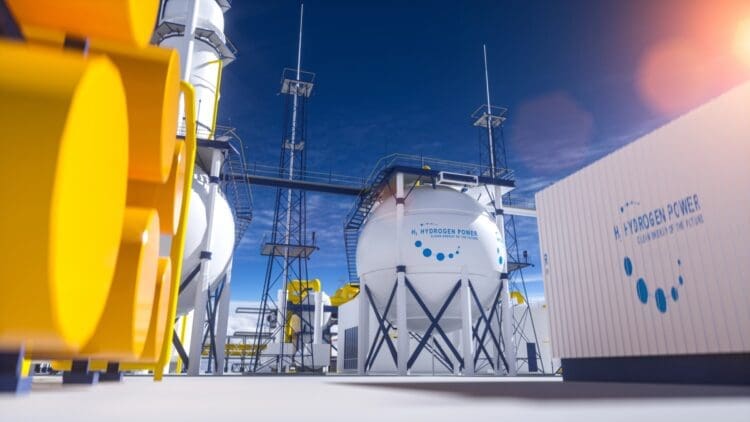The world is entering a futuristic reality where the old energy generation sectors like coal and gas are being replaced by the new and exciting renewable energy sector. However, following a report from Hydrogen Europe, the continent has been warned over the danger of missing its 2030 green hydrogen goal, which the report states is over 90% below previous targets for this year. Hydrogen has emerged from the dust of the renewable energy sector as the most efficient form of energy production, and Europe is facing a reality where the goals it has set for itself to integrate the sector are falling way behind expectations.
Europe has been warned by Hydrogen Europe that it is on track to miss its 2030 green hydrogen goal
Hydrogen Europe is an effective barometer for measuring the progress made in the sector, and the organization has warned Europe that it is way off the mark in meeting its self-imposed goals for increasing green hydrogen production by the end of the decade.
The EU bloc’s target of reaching 10 million tonnes of renewable H2 annually by 2030 has failed to materialize in the face of a slow and stagnating embrace of hydrogen on the continent. Europe planned to increase its hydrogen production to promote the renewable energy sector while also importing a further 10 million tonnes of renewable H2 in the years to follow 2030.
A lack of investment, as well as a less-than-favorable regulatory environment, has slowed the embrace of hydrogen in Europe
Hydrogen has emerged as the most efficient and promising form of renewable energy in a sea of possibilities. However, Europe has seen several regulatory hurdles slowing the adoption of the sector, which has led to a serious warning from Hydrogen Europe. Crucially, Europe will need to foster a more welcoming environment for potential investors and close the bureaucratic guardrails that have existed for generations.
Hydrogen Europe recently released its Clean Hydrogen Monitor 2025, and the outlook for the sector is not good at all
Hydrogen Europe recently released its annual Clean Hydrogen Monitor for this year, and the forecast is that Europe is lagging so far behind the pace of adopting the hydrogen sector that not even Usain Bolt could pick up the slack left behind by the continent.
EU member states have been hesitant to place any type of obligations or expectations on companies aiming to do business in the region, citing a less-than-ideal investment environment as well as concerns over market competitiveness. The report from Hydrogen Europe states that EU member states may need to reach out to import enough energy resources to meet demand as the cold winter months approach.
Europe needs to pick up the pace and develop the hydrogen sector into a dominant force in the energy industry
Several European nations have stepped up their game to advance the hydrogen sector, like Spain, which recently held discussions to acquire a stake in a French energy company’s project that would foster growth in the sector. Hydrogen is the most abundant element in the universe and deserves a lot more attention from the international energy sector.
Some European nations have invested in the hydrogen sector, but more needs to be done
While the hydrogen sector has faced some issues in the European region, some nations have invested millions to promote the growth of the industry in their energy industries. Austria recently allocated over 200 million Euros to accelerate national hydrogen development. So, all hope is not lost, but the slow embrace of the hydrogen sector will inevitably lead to energy demand rising beyond what supply can manage, which will place the European continent in a very precarious position indeed.






